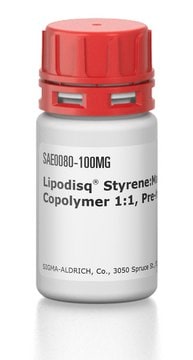About This Item
Recommended Products
vapor density
2.48 (vs air)
Quality Level
Assay
≥98% (GC)
form
liquid
autoignition temp.
500 °F
expl. lim.
~8.3 %
impurities
≤0.01% Water (H2O)
evapn. residue
≤0.001%
color
APHA: ≤30
refractive index
n20/D 1.358 (lit.)
bp
35-36 °C (lit.)
mp
−130 °C (lit.)
transition temp
flash point -48 °C (refers to pure substance)
density
~0.63 g/cm3 at 20 °C
0.626 g/mL at 25 °C (lit.)
shipped in
ambient
storage temp.
room temp
SMILES string
CCCCC
InChI
1S/C5H12/c1-3-5-4-2/h3-5H2,1-2H3
InChI key
OFBQJSOFQDEBGM-UHFFFAOYSA-N
Looking for similar products? Visit Product Comparison Guide
Application
- Evaluation of selected solid adsorbents for passive sampling of atmospheric oil and natural gas non-methane hydrocarbons.: This study evaluates solid adsorbents for sampling atmospheric hydrocarbons, including pentane, providing insights into environmental monitoring techniques. (Helmig et al., 2022).
- Online Liquid Chromatography-Raman Spectroscopy Using the Vertical Flow Method.: This study introduces an online method combining liquid chromatography and Raman spectroscopy for analyzing compounds like pentane, enhancing analytical capabilities in complex matrices. (Lo and Hiramatsu, 2020).
- An eNose-based method performing drift correction for online VOC detection under dry and humid conditions.: This paper presents an electronic nose method with drift correction for detecting volatile organic compounds, including pentane, under varying environmental conditions. (Jaeschke et al., 2020).
Analysis Note
Color (APHA): 30 max
Evaporation residue: 0.001% max
Form: Clear liquid
Infrared Spectrum: Conforms to standard
Water (H2O): 0.01% max
Signal Word
Danger
Hazard Statements
Precautionary Statements
Hazard Classifications
Aquatic Chronic 2 - Asp. Tox. 1 - Flam. Liq. 2 - STOT SE 3
Target Organs
Central nervous system
Supplementary Hazards
Storage Class Code
3 - Flammable liquids
WGK
WGK 2
Flash Point(F)
-40.0 °F
Flash Point(C)
-40 °C
Certificates of Analysis (COA)
Search for Certificates of Analysis (COA) by entering the products Lot/Batch Number. Lot and Batch Numbers can be found on a product’s label following the words ‘Lot’ or ‘Batch’.
Already Own This Product?
Find documentation for the products that you have recently purchased in the Document Library.
Our team of scientists has experience in all areas of research including Life Science, Material Science, Chemical Synthesis, Chromatography, Analytical and many others.
Contact Technical Service












